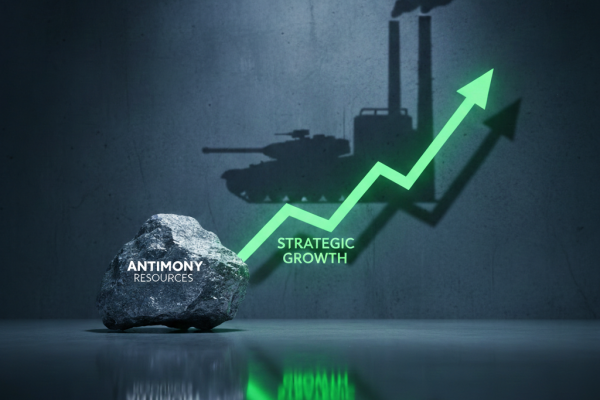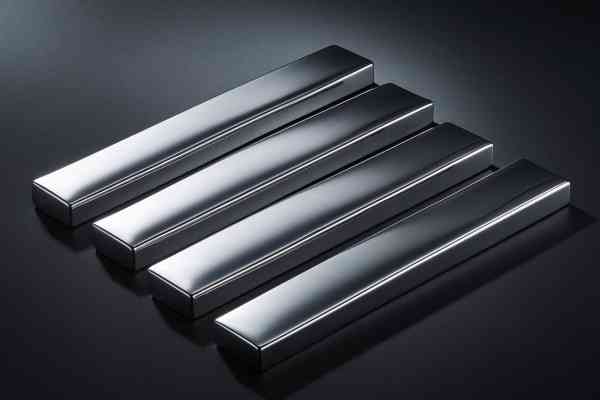June 21st, 2023 | 07:30 CEST
Volkswagen, Defense Metals, Rheinmetall - Dependence on China
Without rare earths, the energy transition fails. There would be neither electric cars nor wind turbines without the critical raw material, which has long been on the list of critical metals in Europe and the USA. But these applications are only the tip of the iceberg because this metal is also needed in the defense industry, smartphones, MRIs and many other high-tech devices. China processes the mined rare earths and has a near monopoly. Now that demand is increasing due to the energy transition and the BRICS countries are slowly breaking away from the US, alternatives should be sought. Today, we look at three companies that cannot do without rare earths.
time to read: 4 minutes
|
Author:
Armin Schulz
ISIN:
VOLKSWAGEN AG VZO O.N. | DE0007664039 , DEFENSE METALS CORP. | CA2446331035 , RHEINMETALL AG | DE0007030009
Table of contents:

"[...] We know exactly what we are doing and are implementing what we consider to be a proven technology in an industrially applicable and scalable way. [...]" Uwe Ahrens, Director, Altech Advanced Materials AG
Author
Armin Schulz
Born in Mönchengladbach, he studied business administration in the Netherlands. In the course of his studies he came into contact with the stock exchange for the first time. He has more than 25 years of experience in stock market business.
Tag cloud
Shares cloud
Volkswagen - Breakthrough in battery production
Today, June 21, is Volkswagen's Capital Markets Day. An important day for shareholders because VW CEO Blume wants to announce what the cost savings program will look like, with which the Group wants to save over EUR 3 billion a year. This should more than double the return on sales from 3% to 6.5%. The Wolfsburg-based company would then be able to respond more flexibly if the price war in the electric vehicle market in China intensifies further. Volkswagen is fully committed to electric drive, and if you assume that there are currently between 1 kg and 3 kg of rare earths built into an electric car, mainly in the form of magnets, then you can see how much demand electric cars will produce.
In March, 763,800 vehicles were delivered across the Group. All-electric vehicles accounted for about 7% in the first quarter, which translates to 53,466 vehicles in May. This represents between 53 t and 159 t of rare earths. The supply chain problems are slowly dissolving, and the Group can produce more again. In order to meet the growing demand for electric vehicles, the battery subsidiary PowerCo, along with Glencore and Stellantis, have given SPAC ACG Acquisition a helping hand in the purchase of 2 mines in Brazil. This secures processed nickel concentrate for its batteries.
Progress has also been made here recently. The subsidiary is able to manufacture the vehicle batteries using a dry coating process, thus saving costs. However, it could still be a few years before series production. This is not expected to happen until 2026 at the earliest. This leap in development should positively impact a possible IPO of PowerCo. The share, which shot up from EUR 116.70 to EUR 133.42 from the beginning of June to mid-June, is currently consolidating and trading at EUR 126.00. The downward trend has thus been broken.
Defense Metals - Pre-Feasibility Study data available
Defense Metals is a member of the Discovery Group and owns a rare earths project called Wicheeda, which covers 4,244 ha and has a good infrastructure. The 2021 resource estimate assumes an indicated mineral resource of 5 million tonnes at an average grade of 2.95% TREO and an inferred mineral resource of 29.5 million tonnes at 1.83% TREO. Values are now expected to be significantly higher as over 10,000 additional meters of drilling have been added. The deposit hosts mainly neodymium and praseodymium, which are in demand in the electric vehicle industry.
A preliminary economic feasibility study arrives at an after-tax net present value of USD 397 million. Having already successfully completed the 1st phase of testing of the hydrometallurgical pilot plant on April 12, the Company was also able to announce the completion of Phase II on June 6. Based on the data obtained, the Company is now in a position to provide its technical consultants with the metallurgical test data required for the Pre-Feasibility Study (PFS). A total of 370 kg of flotation concentrate was processed, achieving an extraction rate of more than 90%.
The Company is slowly moving closer to its goal of providing North American consumers with an alternative to current supply chains. The extracted rare earths from the tests are expected to be used to target potential buyers in H2. PFS completion is planned for Q1 2024. Enough money for the next steps is available after the closing of the private placement. A total of CAD 12.5 million flowed into the coffers, with a total of 48,076,923 shares issued at CAD 0.26. A new strategic investor was found in RCF Opportunities Fund II LP, which subscribed for approximately 25.5 million shares. Although no warrants were issued, the stock still came under pressure and is currently trading at CAD 0.215.
Rheinmetall - Is a major framework agreement coming?
Rare earths are also essential for the defense industry. The critical raw material is needed for aircraft engines, submarines, thermal coatings, night vision devices and other equipment. Since the outbreak of the Ukraine conflict, all signs point to rearmament. The Bundeswehr has been granted a special fund of EUR 100 billion, and its share of the federal budget is also set to rise. This is good news for Rheinmetall, which is considered one of the leading suppliers to the Bundeswehr and should secure a good piece of the pie.
This is also confirmed by the figures for the 1st quarter, which were presented on May 4. Sales grew by 7.6% to EUR 1.4 billion. Operating profit was EUR 73 million. Operating free cash flow was EUR -105 million but improved by EUR 357 million. Management expects to achieve its forecasts. CEO Armin Papperger recently told Reuters that he expects a framework agreement from the German armed forces with a volume of several billion euros. Meanwhile, the Minister-President of Brandenburg is trying to lure the Company to his state to produce parts for the F-35 fighter jet.
The good news has given the stock a boost. The order books are full with orders worth more than EUR 30 billion. The Company intends to use the current upswing to open up further business areas, such as compressors for heat pumps. Since the beginning of May, there have been 5 buy recommendations for the share with short targets between EUR 275.00 and EUR 310.00. Only UBS recommended "hold" with a target of EUR 233.00. The share has long since exceeded this target and is currently available for EUR 259.80.
Rare earths remain in demand. On the one hand, due to China's monopoly position, and on the other, due to the strong increase in demand from the automotive sector. Volkswagen is already trying to secure important raw materials through its subsidiary and is developing new battery technologies. Defense Metals owns an economic rare earths project and can thus mitigate the dependence on China to some extent. Rheinmetall benefits from armament worldwide and sits on full order books. New highs would not be a surprise.
Conflict of interest
Pursuant to §85 of the German Securities Trading Act (WpHG), we point out that Apaton Finance GmbH as well as partners, authors or employees of Apaton Finance GmbH (hereinafter referred to as "Relevant Persons") may hold shares or other financial instruments of the aforementioned companies in the future or may bet on rising or falling prices and thus a conflict of interest may arise in the future. The Relevant Persons reserve the right to buy or sell shares or other financial instruments of the Company at any time (hereinafter each a "Transaction"). Transactions may, under certain circumstances, influence the respective price of the shares or other financial instruments of the Company.
In addition, Apaton Finance GmbH is active in the context of the preparation and publication of the reporting in paid contractual relationships.
For this reason, there is a concrete conflict of interest.
The above information on existing conflicts of interest applies to all types and forms of publication used by Apaton Finance GmbH for publications on companies.
Risk notice
Apaton Finance GmbH offers editors, agencies and companies the opportunity to publish commentaries, interviews, summaries, news and the like on news.financial. These contents are exclusively for the information of the readers and do not represent any call to action or recommendations, neither explicitly nor implicitly they are to be understood as an assurance of possible price developments. The contents do not replace individual expert investment advice and do not constitute an offer to sell the discussed share(s) or other financial instruments, nor an invitation to buy or sell such.
The content is expressly not a financial analysis, but a journalistic or advertising text. Readers or users who make investment decisions or carry out transactions on the basis of the information provided here do so entirely at their own risk. No contractual relationship is established between Apaton Finance GmbH and its readers or the users of its offers, as our information only refers to the company and not to the investment decision of the reader or user.
The acquisition of financial instruments involves high risks, which can lead to the total loss of the invested capital. The information published by Apaton Finance GmbH and its authors is based on careful research. Nevertheless, no liability is assumed for financial losses or a content-related guarantee for the topicality, correctness, appropriateness and completeness of the content provided here. Please also note our Terms of use.




